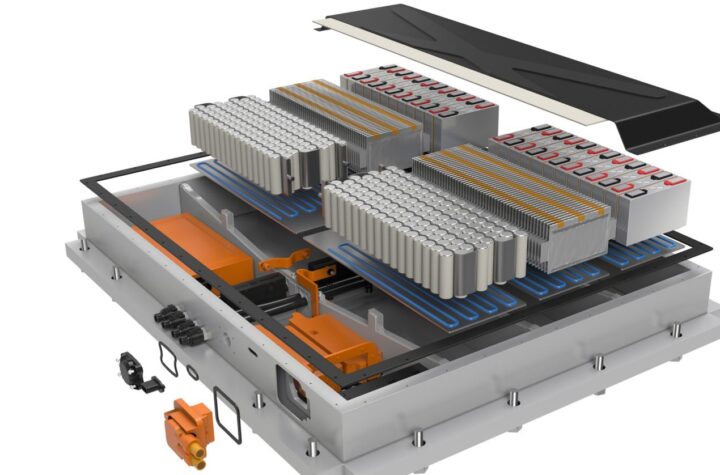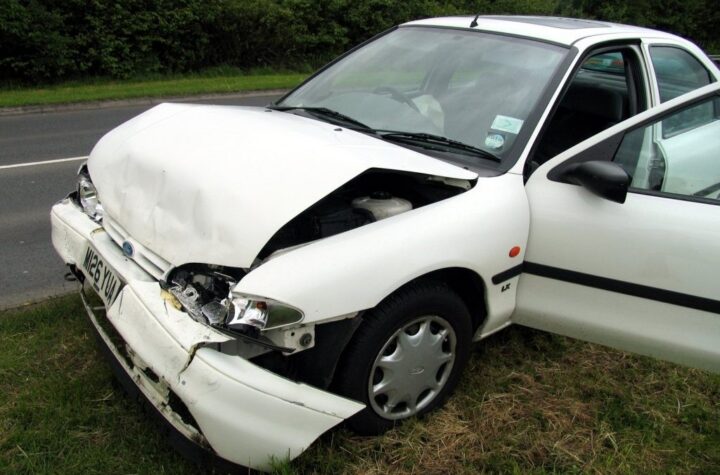
Vay, the world’s leading teledrive mobility company, has announced that it
will become the first company with a driverless, certified commercial
mobility service operating on public streets in Europe as soon as next year.
Operating in stealth mode since its founding in 2018 until today, the
company reveals a bold new plan to put ‘teledrivers’ at the steering wheel
of vehicles in metropolitan areas.
“Our advanced technology enables a person (the “teledriver”
Tweet this
“Our advanced technology enables a person (the “teledriver”) to remotely
drive a vehicle (“teledriving”). This allows for a safe and timely rollout
of driverless mobility services that users and cities trust as a human is
still in full control,” said Vay co-founder and CEO Thomas von der Ohe.
Over time, while serving customers and based on high quality teledriving
data, Vay is able to launch autonomous features gradually – starting with
the ones that are safe and ready to deploy.
Vay’s fleet of vehicles is already operating with safety drivers across all
of Berlin today. Recent technological and regulatory advancements will allow
Vay to remove the safety driver from its vehicles next year.
Vay’s system is built to be safer than conventional driving by controlling
the top four causes of fatal urban accidents, which are speeding,
intoxication, distraction, and fatigue. In addition, when compared with
conventional driving from within a car, Vay’s teledrivers have augmented
skills, including 360-degree blindspot-free vision. Lastly, Vay’s system is
engineered to the highest and latest automotive safety and security
standards (ISO26262, ISO21434) and has redundancies throughout its system,
including the simultaneous use of multiple cellular networks.
“As our system does not rely on expensive 360-degree lidar sensors, and is
therefore comparatively inexpensive, our way of rolling out driverless
vehicles will not only enable consumers to experience driverless mobility
sooner, but also provide a highly scalable solution that can be integrated
into every car. Having spent 6 years in Silicon Valley, we are now eager to
build a global, first-of-its kind, deep-tech company from Europe”, added von
der Ohe.
Vay will start by offering the most affordable door-to-door transportation
service. People can order a car, which arrives within a few minutes, and
then drive themselves to their destination. Upon arrival they will be able
to leave the car without having to park it. This will be offered at a
fraction of the cost of an Uber ride, which is why Vay believes its service
will be highly competitive with owning a car in urban areas.
However, going after urban car ownership is only one objective. Vay’s
technology can be applied to many other use cases, ranging from ride hailing
to ride sharing, from parcel to food delivery, from buses to trucks, and
from mining to construction machinery.
The company’s ambition is to not only bring Europe back to the forefront of
the race to develop driverless vehicles that will solve many of today’s
transportation challenges, but also to create a new job category: the
teledriver.
The teledriver job has significant benefits over taxi or ride-hailing jobs,
as teledrivers can work from the same place every day and are paid a fixed
income. Vay believes that teledriving will create more inclusive and
gender-balanced employment opportunities due to the additional safety of
drivers and customers not having to share the same physical space,
especially during the pandemic and at night.
Vay’s team wants to address the most pressing issues facing metropolitan
areas around the world today, including traffic deaths, air pollution, and
high costs of transportation.
Vay has been closely engaged with European and US regulators and
policy-makers, who have been supportive because Vay will offer affordable
mobility services to citizens who are currently underserved by existing
transport solutions, whether that is in city centers, suburban or rural
areas. Additionally, introducing sustainable, electric, and highly utilized
vehicles means less pollution and less cars in cities.
Vay was founded by Thomas von der Ohe, Fabrizio Scelsi, and Bogdan Djukic in
September 2018. The team has previously worked at companies such as Tesla,
Google, Waymo, Zoox, Skype, Byton, Argo, Amazon, Uber as well as Audi, BMW,
and Daimler. Vay has raised over 30m USD in Series A funding from leading
European VCs such as Atomico, Creandum, LaFamiglia, System.One, Visionaries
Club, Signals as well as business angels Patrick Pichette (Partner at Inovia
Capital, chairman of the board at Twitter, former global CFO at Google),
Cristina Stenbeck (Board member of Spotify, chairman of the board at
Zalando), Qasar Younis (co-founder and CEO of Applied Intuition, former COO
and Partner of Y Combinator), and Formula 1 champion Nico Rosberg. The
company has offices in Berlin, Germany, and Portland, OR.
About Vay
Vay is a Berlin-based deep technology company that is on track to launch the
first driverless, safety-certified, commercial fleet on European public
streets. Starting next year. Unique about Vay is its teledrive-first
approach to autonomous driving.
Vay’s fleet of vehicles is already operating with safety drivers across all
of Berlin today. Recent technological and regulatory advancements will allow
Vay to remove the safety driver from its vehicles next year.
Thomas von der Ohe, Fabrizio Scelsi, and Bogdan Djukic founded Vay in
September 2018. Their team combines the best of two worlds – software and
product experience from Silicon Valley and automotive hardware & safety
engineering from Europe. Vay’s team members have previously worked at
companies such as Tesla, Google, Waymo, Zoox, Byton, Argo, Amazon, Uber as
well as Audi, BMW, and Daimler, and have founded various companies before.
Vay has raised over 30m USD and is backed by leading European investors. The
company has offices in Berlin, Germany, and Portland, OR.












More Stories
DuPont materials science advances next generation of EV batteries at The Battery Show
How a Truck Driver Can Avoid Mistakes That Lead to Truck Accidents
Car Crash Types Explained: From Rear-End to Head-On Collisions